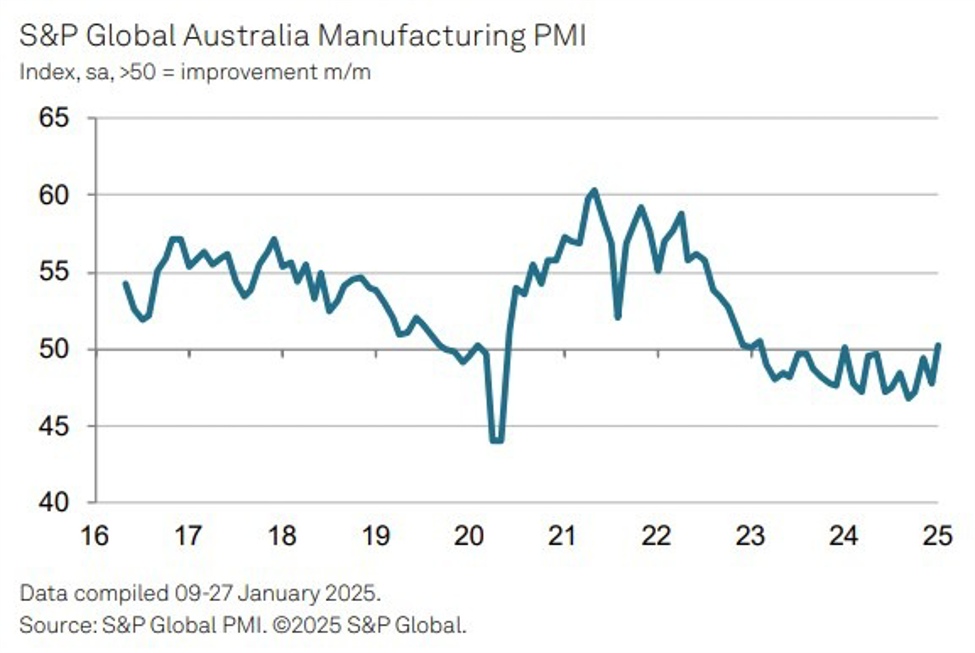Manufacturing Momentum: Australia's Industrial Sector Surges Past Expectations in January

Australian Manufacturing Sector Shows Resilience in January 2025
The latest S&P Global Final Manufacturing Purchasing Managers' Index (PMI) for Australia reveals a promising start to the year, signaling continued strength and adaptability in the nation's manufacturing landscape.
In January 2025, the manufacturing sector demonstrated notable momentum, with the final PMI reading indicating sustained growth and positive economic indicators. The data suggests that Australian manufacturers are navigating challenges with strategic precision and maintaining a robust operational outlook.
Key Highlights:
- Steady expansion of manufacturing activity
- Improved production and new order volumes
- Positive employment trends within the sector
Economists and industry experts are optimistic about the manufacturing sector's potential, viewing the January 2025 data as a strong foundation for continued economic recovery and industrial development.
The comprehensive PMI report underscores the resilience and innovative spirit of Australian manufacturers in an increasingly complex global economic environment.

